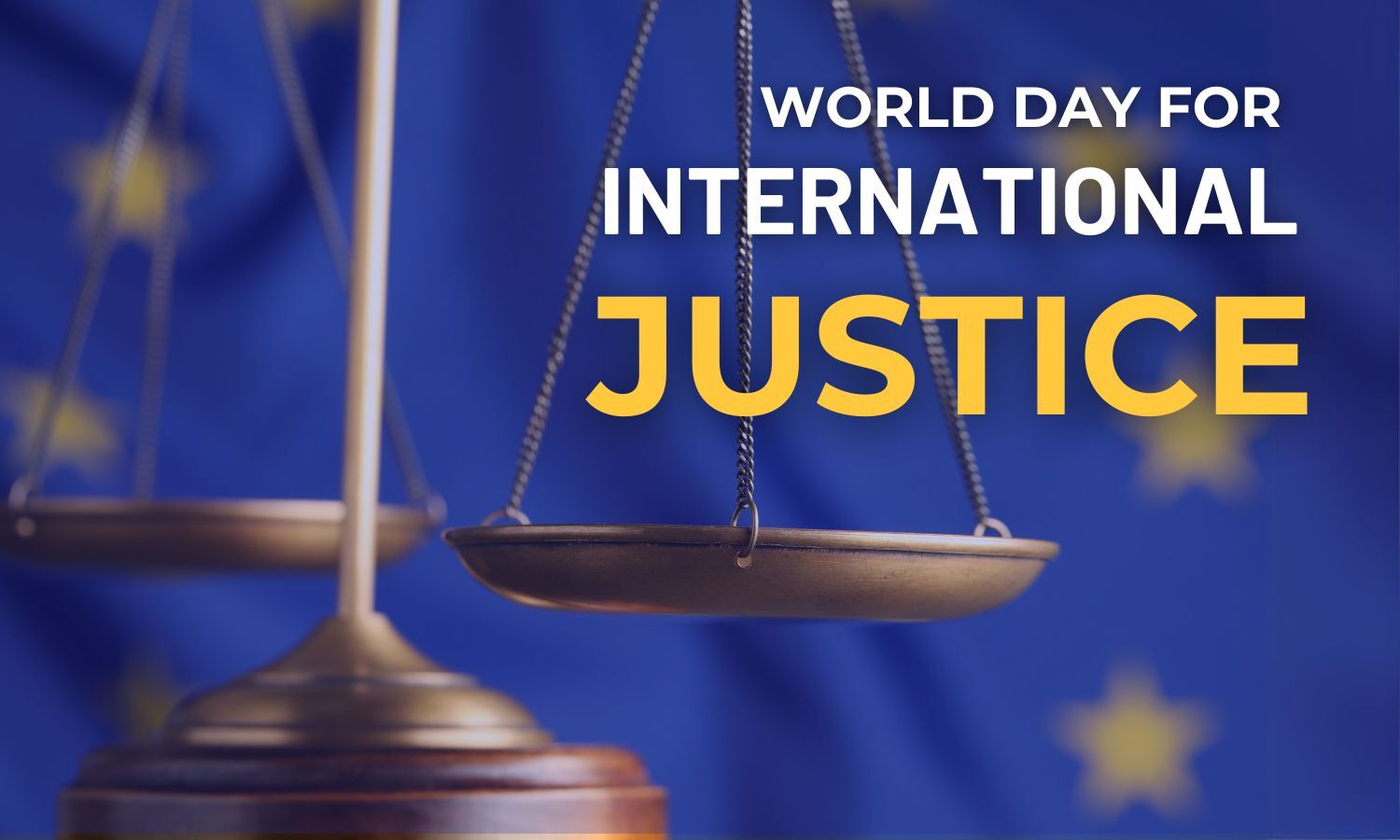Table of Contents
Every year on July 17, the world observes the World Day for International Justice to honor the adoption of the Rome Statute in 1998, which established the International Criminal Court (ICC). This day highlights the global commitment to ending impunity for the most serious international crimes, including genocide, war crimes, and crimes against humanity. In 2025, this observance continues to emphasize accountability, peace, and the protection of human rights worldwide.
What is World Day for International Justice?
The World Day for International Justice is a global event dedicated to promoting international criminal justice and raising awareness about crimes that threaten humanity. It commemorates the adoption of the Rome Statute, the treaty that gave birth to the ICC, the first permanent international court with the mandate to prosecute serious crimes that affect global peace and security.
History of World Day for International Justice
-
July 17, 1998: The Rome Statute was adopted in Rome by 120 countries, marking a major step in international law.
-
July 1, 2002: The ICC officially began its operations.
-
2010: During the Review Conference in Kampala, Uganda, July 17 was officially declared as the World Day for International Justice.
This day is a testament to the progress made in international justice and a reminder of the ongoing fight against impunity.
Why is World Day for International Justice Important?
In an era marked by armed conflicts, political upheavals, and human rights abuses, the World Day for International Justice underscores:
-
The necessity of holding perpetrators accountable, no matter their status or power.
-
The importance of victims’ rights and the pursuit of truth and reconciliation.
-
The role of international legal frameworks in maintaining peace and security.
-
The need to strengthen judicial systems and enhance global cooperation.
Theme for World Day for International Justice 2025
As of now, the official theme for 2025 has not been announced by the ICC or the United Nations. However, based on recent trends and global challenges, the theme is expected to focus on:
-
Strengthening justice systems to protect human dignity and peace.
-
Addressing emerging challenges like digital crimes, AI abuses, and cyber warfare.
-
Enhancing victim support and access to justice.
-
Bridging gaps between local and international justice mechanisms.
The Role of the International Criminal Court (ICC)
The ICC, headquartered in The Hague, Netherlands, is the world’s first permanent international criminal court tasked with prosecuting individuals responsible for:
-
Genocide
-
Crimes against humanity
-
War crimes
-
Crimes of aggression
Unlike national courts, the ICC ensures that serious crimes do not go unpunished when states are unwilling or unable to act. It fosters international cooperation and serves as a deterrent against future atrocities.
Challenges Facing the ICC
-
Limited jurisdiction due to some powerful countries like the USA, China, and Russia not ratifying the Rome Statute.
-
Political non-cooperation and selective application of justice.
-
Limited resources affecting investigations and trials.
The Role of NGOs in Advancing International Justice
Non-governmental organizations play a vital role in:
-
Documenting human rights violations and gathering evidence.
-
Providing legal aid and psychosocial support to victims and survivors.
-
Advocating for policy reforms and encouraging states to ratify the Rome Statute.
-
Raising public awareness through education and campaigns.
-
Collaborating with international bodies for transitional justice and reconciliation.
How is World Day for International Justice Celebrated?
Worldwide, the day is marked through:
-
Official ceremonies by the ICC and the United Nations.
-
Awareness campaigns on social media using hashtags like #JusticeDay2025.
-
Panel discussions, seminars, and webinars by universities and human rights groups.
-
Community events like film screenings, art exhibitions, and interactive workshops.
-
Educational programs in schools promote the values of justice and accountability.
Relevance of World Day for International Justice in 2025
The observance remains crucial amid ongoing conflicts in Ukraine, Gaza, and parts of Africa, as well as emerging threats such as:
-
Cyber warfare and disinformation campaigns.
-
Environmental crimes and ecocide.
-
Technological abuses like AI-enabled surveillance.
It serves as a call to strengthen international justice mechanisms and uphold human dignity worldwide.
Conclusion
The World Day for International Justice 2025 is a powerful reminder of the international community’s dedication to peace, accountability, and human rights. It emphasizes that justice is not just about punishing offenders but also about restoring dignity and empowering victims. As the world faces new challenges, this day motivates governments, NGOs, and citizens to work collectively toward a just and peaceful future.


 Anusandhan National Research Foundation ...
Anusandhan National Research Foundation ...
 Places in News for UPSC 2025 for Prelims...
Places in News for UPSC 2025 for Prelims...
 Aircraft Accident Investigation Bureau (...
Aircraft Accident Investigation Bureau (...





















